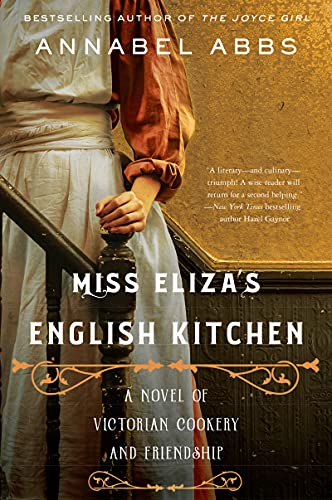Miss Eliza’s English Kitchen (US/CAN) / The Language of Food (UK)
The author’s love of old cookbooks has inspired a delightful imagining of the origins of the first truly famous English recipe book, Modern Cookery, published in 1845. Eliza Acton and her assistant, Ann Kirby, were real people; while Eliza’s status as a published poet, playwright, and gentlewoman left ample evidence about her life, Ann was known only by a brief mention. Abbs chooses the brilliant tactic of giving both Eliza and Ann equal time as point-of-view characters in this novel; because their voices are so distinct, and because they occupy such different classes, we get a portrait of Victorian domestic life that is both encompassing and finely detailed.
Acton’s life carried hints of scandal in spite of the cozy domesticity of her most famous work, and Abbs captures the character of a woman who channels her intense sensuality into the socially acceptable context of cookery. Ann is an equally capable cook whose hero-worship of Eliza is thoughtfully tempered by her clear-eyed understanding of the harm caused by the willful blindness of the privileged class to the suffering of the poor. Through her, we learn about the desperation of the mentally and physically disabled, and the hypocrisy of the wealthy who hid them—and their needs—away. Because Ann is a bright and satirical observer, these somber details don’t overshadow the entertaining portrait of the growing friendship between these two talented women. Recipe-loving readers will appreciate the detailed descriptions of Victorian dishes like Apple Hedgehog and Buttered Celery on Toast; fans of women’s history will find plenty to admire in the way Ann and Eliza inspire one another to be true to themselves in a culture that has little use for intelligent single women.










